
Balancing Multiple Time Periods, a Sense of Humor, and the Many Moods of Benedict Cumberbatch in the Avid
The great mathematician Alan Turing built what many consider to be the world's first modern computer. Turing's machine not only cracked the Nazi's unbreakable Enigma code at a time when the Germans seemed unbeatable but hastened the end of a deadly war, saving thousands of lives. An intellectual who ran marathons at near Olympic level, Turing was also later prosecuted by the British government for homosexuality and committed suicide—a tragic, dramatic turn for such a revered war hero and original mind. Director Morten Tyldum's new film The Imitation Game, explores the connection between Turing's deeply layered private life and the embodiment of his life's work in his code-breaking machine. Featuring a British cast and crew with Benedict Cumberbatch in the leading role, the film was shot on 35mm by Spanish cinematographer Óscar Faura and edited by Academy Award winner William Goldenberg, who was based in Los Angeles during production in England. Goldenberg is currently on location in Pittsburgh editing the true-life story of Bennett Omalu, the Nigerian doctor who first identified the prevalence of encephalopathy (CTE) in former NFL players battered by chronic head injury.
Goldenberg is no stranger to editing films based on actual events. He received two Academy Award nominations last year for his work Zero Dark Thirty and Argo, eventually winning for Argo. During this year's Oscar race, with credits for the similarly fact-based The Imitation Game and Unbroken (edited with Tim Squyres), he could once again be running against himself.
Although The Imitation Game is primarily sourced from Andrew Hodges' book Alan Turing: The Enigma, Goldenberg says he worked directly from Graham Moore's screenplay, one that sat for a long time at the top of Hollywood's infamous "Black List," the unofficial studio executive ranking of the best scripts yet still unmade. "In the past, I've gotten myself a little off course by reading the source material before I did a movie," he says. "I did this on Seabiscuit, and I'd find myself thinking about alternate aspects of the story that I'd read in the book. On that film, I came to realize over time that we were making a specific story that had different elements and layers to it that the book doesn't have."
For this project, Goldenberg let Norwegian director Morten Tyldum be his guide. "I learned a tremendous amount about Turing's story as the movie went on," he says. "Morten has an almost encyclopedic knowledge of his life, as does Graham, so both helped fill in any gaps for me."
Audiences have also come to expect a liberal dose of creative license in historical feature-length dramas, and with no footage or recordings of Turing to turn to, there was plenty of room for interpretation during the shoot and during the edit. "One could only get a sense of what his demeanor was like from what people had written about him," says Goldenberg. "Benedict's take on all that was his interpretation of what he thought Turing was like, based on what he had read."
Tyldum shot multiple takes of every scene, which nearly all feature Cumberbatch. "On top of that, Benedict delivered numerous shadings with each performance," says Goldenberg. "What was really challenging was blending all those different tones and balancing it among the films' three different time periods. A lot of our discussions early on were, what is Alan thinking and how does he really feel about other people in the scene? Is he being truthful? Is he kind or unkind? Is he just autistic?" The goal, he says, was to hone Cumberbatch's performance "into what we wanted it to be, what would best suit the film and also be faithful to historical record. That being said, I think that any time you make a film that is not a documentary there are liberties taken for dramatic purposes. But you stay faithful to the heart of the situation and present the situation the best way possible."
Despite the wide range of interpretive readings from the actors, Goldenberg says he discovered a surprising similarity about the way each approached their roles. "What I've learned from this film is that British actors have a great respect for the written word," he says. "There was one scene that needed filling out and Morten suggested they improvise. But none of them wanted to do that; they all wanted to start with something on paper first."
The film's gravitas is balanced by "lots and lots of humor," says the editor, "resulting both from Alan's social awkwardness but also his superior intellect, head and shoulders above even the smartest folks in the room. That gave rise to a number of very funny situations, which Benedict delivered flawlessly. I guess it is similar in that way to Argo, and it was my job to make the lighter elements feel organic to a film with a very serious subject at its heart. Still, my favorite scene is when Alan suddenly figures out the key to breaking the code after overhearing something. Everything clicks. He runs back to the machine and it is the only time we see it stop."
Goldenberg was never on set during production, but says distance was hardly an issue. "During shooting, Morten and I only had one face-to-face meeting on Skype; all the rest of our conversations were on the telephone." Goldenberg and one assistant editor in L.A. would cut footage and send back an edited scene every Saturday via Dax. "Morten and I would then get on a call to discuss it, mostly drilling into the subtext and emotional center of the scene in question." They subsequently worked in person after principal shooting ended and Tyldum returned to L.A.
Cumberbatch with director Morten Tyldum on set
Goldenberg's first experience with Avid was on Michael Mann's 1999 film, The Insider. He edited The Imitation Game on Media Composer version 5.5. "It's become an extension of my hands, or of my brain, really," he says. "It keeps getting better, but I find that the new features are always intuitive. I don't even have to look down to learn something new. It just happens instinctually. That really frees me up when I work."
On Zero Dark Thirty, where Goldenberg had some 350 hours of footage to work with, the challenge was managing the sheer volume of material. "The Avid's locator function was invaluable to me on that show; I could more easily write all my notes and pull selects and label them." The Imitation Game's shifts in time periods and tones presented a different set of challenges for him. "Combining the three different elements and intercuts back and forth was the tricky part," he says. "My goal was to give each cut a purpose and make them flow in a meaningful way." Due to budget constraints, editorial was a very small operation. "I couldn't have done it without film editor Andrew S. Eisen or post-production assistant Peter Dudgeon," he says. "We all did this picture as a labor of love at a fraction of our usual salaries because we really believed in it. Andrew and Peter in particular made the whole process so easy on me and worked very, very hard."
Already deep into the edit on Unbroken, Goldenberg missed an early private screening of The Imitation Game and saw the film for the first time with a packed house at the official premiere. "It played beautifully and was such a joy to experience," he says. "I'm thrilled that audiences are really responding to it so positively. That's all I wanted to do when I signed on—make a truly enjoyable film."
Did you enjoy this article? Sign up to receive the StudioDaily Fix eletter containing the latest stories, including news, videos, interviews, reviews and more.
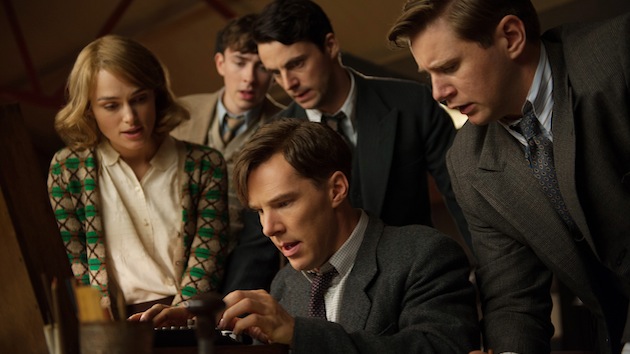
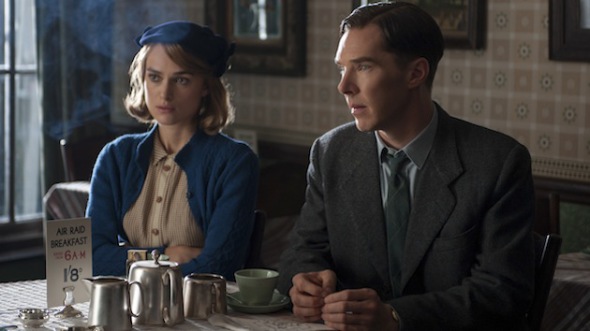
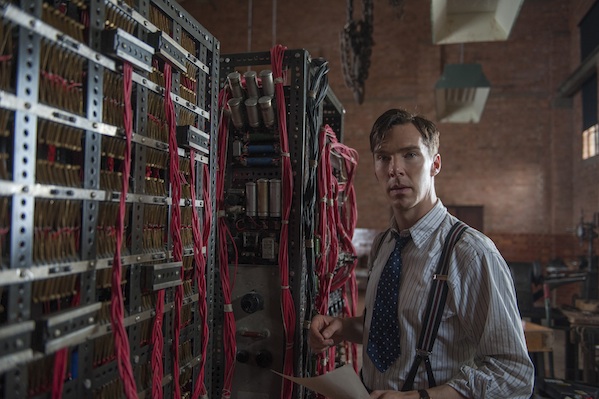
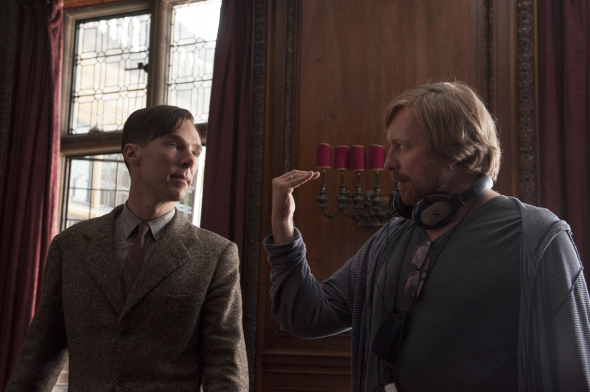



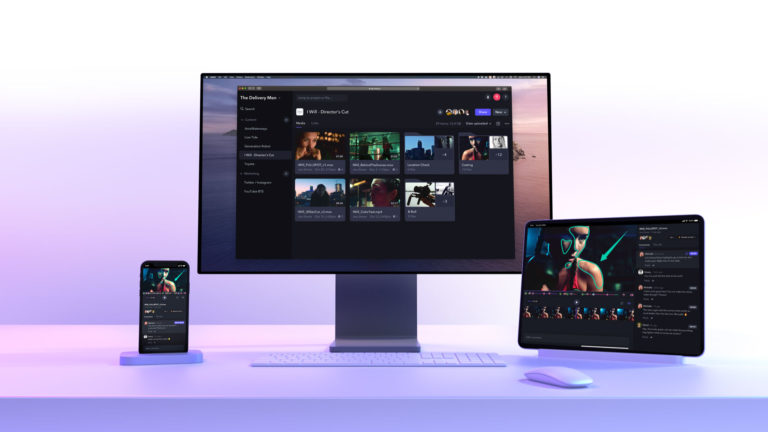






Leave a Reply